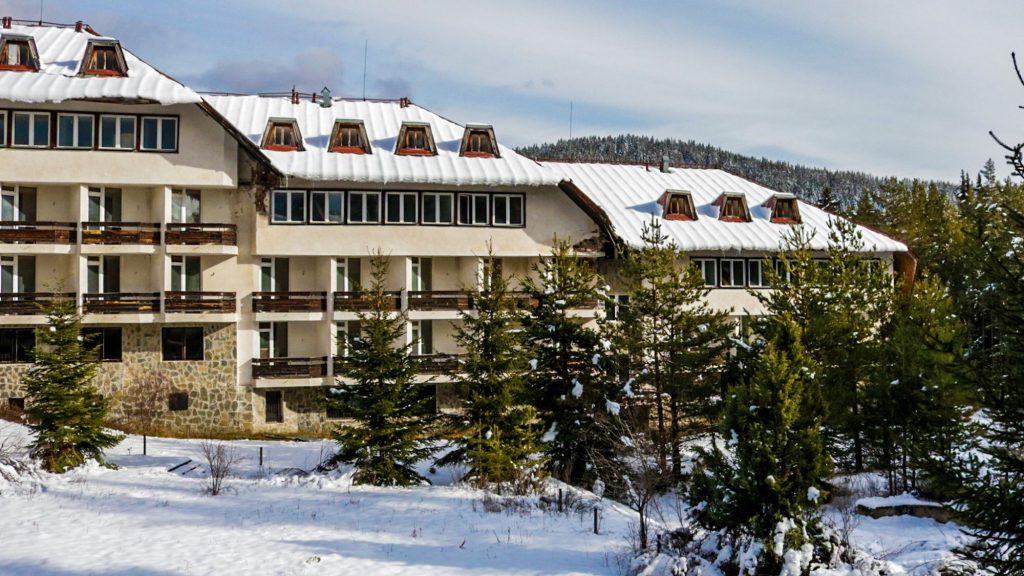South Africa’s esports scene is set for a major showdown as Hyprop and MTN introduce SHIFT COD, a Call of Duty tournament forming part…
Digital nomads create co-living utopias across the globe

The digital nomad lifestyle is rapidly growing in popularity worldwide, and many are seeking unique experiences that blend community, collaboration, and the freedom to work from anywhere.
One such destination that is attracting attention from digital nomads and remote workers is Coliving Semkovo, a community-owned co-living space in the remote Bulgarian mountain resort of Semkovo.
The project aims to convert a majestic 16,700 square-metre hotel building into 200 apartments and provide a unique community experience in a remote setting surrounded by nature.
According to Matthias Zeitler, the founder of Coworking Bansko, the base for digital nomads in Bulgaria, the project’s main objective is to “take community building to the next level and create Coliving Semkovo.”
The project has already garnered the interest of over 200 people, with many backers putting down deposits to move the project forward.
One remarkable aspect of the project is that it will be community-owned, with individual apartment owners forming part of the co-op structure that will manage the co-living business and develop the destination.
When the owners are not living in their apartments, they can rent them out to digital nomads, remote teams, start-ups, and tech incubators who can benefit from being in a location that combines unspoilt nature and a like-minded community with the facilities required to succeed in the future of remote work.
According to Zeitler, the location’s remote setting is part of its appeal. “Semkovo is in a unique position, as it is located in the heart of the Rila mountains, surrounded by stunning nature and outdoor activities. It provides a perfect place to escape the city, and the environment creates the perfect balance between work and leisure.”
Coliving Semkovo will offer an array of amenities and facilities such as work and event areas, a communal kitchen, a swimming pool, a restaurant, a bar and cafe, cinema, private offices, art space, and more. The project will also partner with service providers to offer activities such as yoga, guided mountain tours, Brazilian Jiu-Jitsu, and business support services such as accounting, legal, and insurance.
Bulgaria’s remote location, with many unused buildings and old hotels in areas that have fallen out of favour, make the project financially viable to buy big, otherwise unused properties, and convert them into one of the world’s most exciting co-living spaces.
Moreover, Bulgaria’s attractive tax system with only 10% income tax attracts many European Union citizens to move their residency and businesses there. The country’s natural beauty, rich cultural history, and low cost of living make it an ideal place for digital nomads and remote workers.
In Africa, digital nomads are also finding new opportunities for remote work. Several countries, such as Mauritius, Kenya, and Rwanda, have introduced digital nomad visas to attract remote workers and digital entrepreneurs to their countries. These visas offer benefits such as long-term stays, access to workspace, and the ability to work remotely without paying local taxes.
The growth of digital nomad visas in Africa shows the continent’s potential to become a hub for remote work and entrepreneurship.
According to Akinyi Ochieng, a digital nomad from Kenya, “Africa is an excellent destination for digital nomads, with its diverse culture, wildlife, and breath-taking scenery. The introduction of digital nomad visas has made it easier for remote workers to experience the continent and its people. It also provides an opportunity for digital nomads to contribute to the growth of local businesses and communities.”
The Coliving Semkovo project in Bulgaria offers a compelling vision of the future of remote work, where a community of digital nomads, remote teams, and start-ups can collaborate and thrive in a natural setting.
As the popularity of digital nomadism continues to rise globally, the growth of digital nomad visas in Africa also presents a promising opportunity for the continent to attract remote workers and entrepreneurs, and tap into the benefits of the remote work revolution.
READ NEXT: Toco platform fights climate change with every transaction

